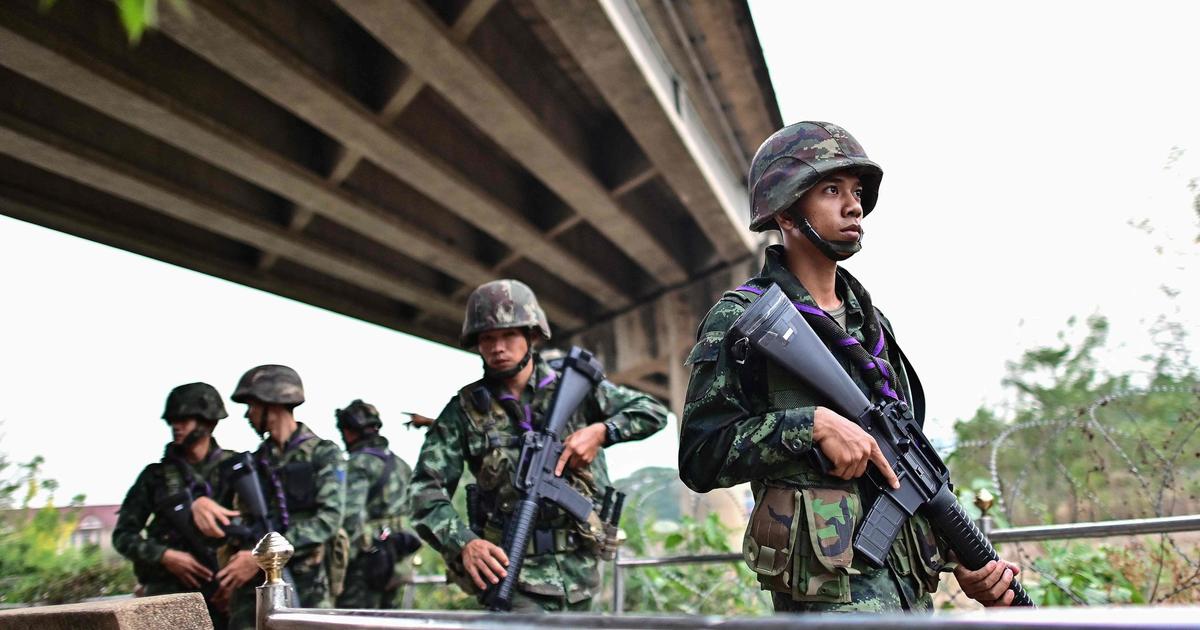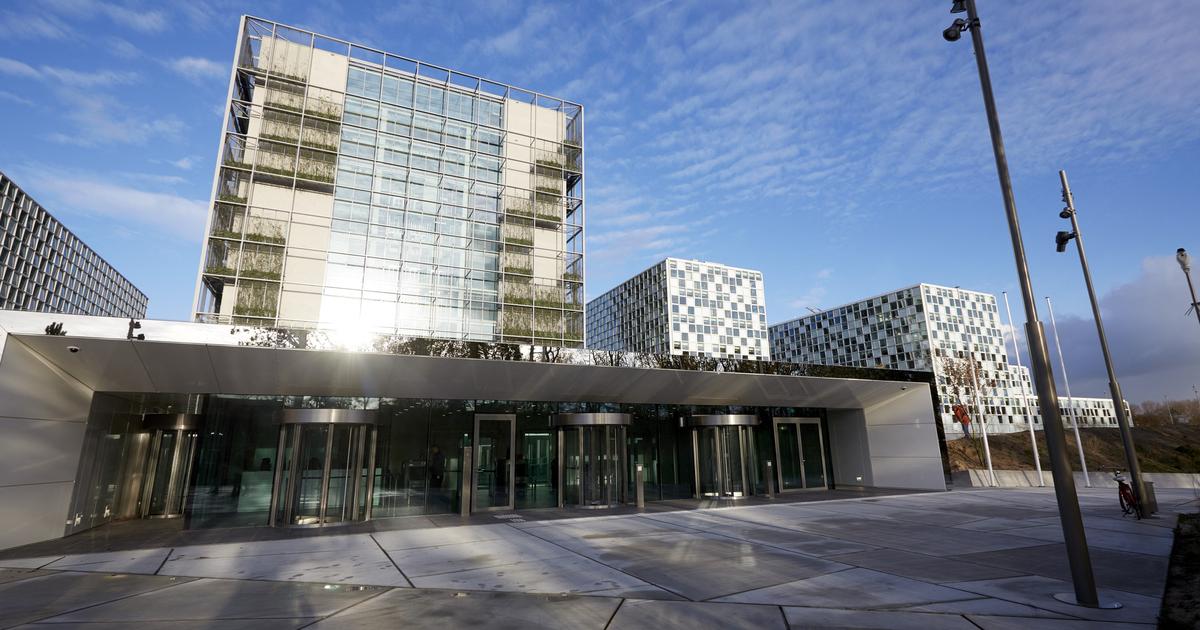It is a brutal change that is happening in The Hague these days: Aung San Suu Kyi, head of government of Myanmar, was in her own country for over 15 years in a house arrest forced by the military. In 1991 she was awarded the Nobel Peace Prize. Only a few years ago, she came to Europe as a democracy activist to speak of non-violent resistance to the military junta. This time, however, Aung San Suu Kyi has traveled to the International Court of Justice (ICJ) to defend her country against allegations of genocide against the Rohingya - allegedly committed by the same military. The 74-year-old is changing from a human rights campaigner to the defender of a possible genocide.
Aung San Suu Kyi is wearing a pink rose hair band as she speaks in The Hague on Wednesday morning. She begins defending Myanmar by challenging the validity of the International Criminal Court. A misconduct of their country rejects them: There was no genocide. Gambia has "drawn an incomplete and misleading" picture of the situation in the state of Rakhine.
"Inappropriate violence" is not excluded
Gambia accuses Myanmar of genocide against the Rohingya Muslim minority. The country is said to have violated the 1948 United Nations Genocide Convention by attempting to "partially or wholly destroy the Rohingya as a group." The African state relies on reports from UN investigators accusing the military in Myanmar of "continuing genocide".
About two years ago, more than 700,000 people from Rakhine fled from the atrocities committed by the military to neighboring Bangladesh. There they are still waiting in overcrowded camps, traumatized and without perspective. Since 2017, soldiers in the state have killed thousands of people. They had raped women and children, destroyed villages and burned people alive, according to the reports.
Aung San Suu Kyi said Wednesday that mass displacement during the Balkan wars in the 1990s was not treated as a genocide. The problems in the Rakhine, home of the Rohingya, went back centuries, said the head of the government. While it can not be ruled out that Rakhine soldiers responding to attacks by local groups would have used "inappropriate force".
The "purpose of a genocide" can not be the only hypothesis in the complex Myanmar case, says Aung San Suu Kyi. "We are dealing with an internal armed conflict started by the Rohingya Army." If the military committed war crimes, they would be prosecuted. But under the genocide convention of 1948, these crimes did not fall, she said. "Tragically," the conflict has led to the exodus of thousands.
AFP
Cheers to Aung San Suu Kyi in Myanmar: "We're with you"
Aung San Suu Kyi, who also served as Foreign Minister of her country and spoke to the court in this capacity, is currently preparing for the November 2020 elections with her National League for Democracy party. That's another reason why she has pacted with the generals: the military could in turn allow a constitutional amendment so that Aung San Suu Kyi can be elected president. So far, a law prevents Burmese having foreign relatives or spouses from being elected heads of state. Aung San Suu Kyi's husband and her children are British nationals.
Already on Tuesday she was present at the hearing in the courtroom. She sat dressed in black and with a headband of yellow-orange rose heads in the front row and listened to the trial in the highest court of the United Nations with a stunned mine. 17 lawyers from Gambia spread before her the brutal accounts of Rohingya, who suffered from Myanmar's military.
The mass murders and systematic persecution of Rohingya should be stopped immediately, demanded Gambia's Attorney General Abubacarr Marie Tambadou. A US attorney working for the Gambia showed in court the image of a billboard in Myanmar depicting Aung San Suu Kyi on the occasion of her European tour with three smiling generals. Below it is: "We are with you". This shows, according to the lawyer, that Myanmar has "absolutely no intention" to hold the military accountable.
The fear of losing power
Aung San Suu Kyi was once awarded the Nobel Peace Prize for fighting in Myanmar under the junta's iron grip on democratic principles and human rights. She became an international icon because of her courage. But she also once wrote: The fear of losing power, makes corrupt.
With her appearance in The Hague she has shown that in her case there is a lot of truth. By acting as a military puppet, instead of denouncing violence against the Rohingya, she is buying power in her own country. The experienced politician knows: The Muslim Rohingya are hated by the majority of Buddhist Burmese and are considered "illegal immigrants". With cool opportunism, Aung San Suu Kyi has so far avoided any partisanship for the minority.
In her homeland, the Prime Minister is celebrated nationwide because she has traveled to Europe to defend her country. There are art exhibitions that praise her heroism and posters that wish her good luck. Her fans assume that the expulsion of the Rohingya simply did not happen.
Instead, many Myanmar citizens consider international efforts to hold the military accountable as an attempt by oil-rich sheiks to subjugate their supposedly peaceful, Buddhist nation. With her Oxford education and international character, Aung San Suu Kyi is considered by many to be an ideal candidate to convince the judges to drop the charges. It is to judge the failed communication and to tell the "true story". It is said to be as convincing as it was when it won overseas support against the repressive military junta.
The Gambia is meanwhile demanding an injunction against Myanmar to protect the remaining 600,000 Rohingya. The predominantly Muslim West African country is supported by the Organization for Islamic Cooperation with its 57 member states. Canada and the Netherlands also support the Gambian cause. The US issued sanctions on four Myanmar military leaders on Tuesday for violating human rights violations against Rohingya and other minorities.
The current hearings in The Hague last until Thursday, but the process is long and complex. The court could take years to reach a verdict. Only three times since the Second World War, a genocide was recognized and condemned under international law: in Cambodia in the late seventies, in 1994 in Rwanda, and in 1995 in Srebrenica, Bosnia.






/cloudfront-eu-central-1.images.arcpublishing.com/prisa/O6VJSG6WH364DROLYDIMRAHFDU.jpg)

